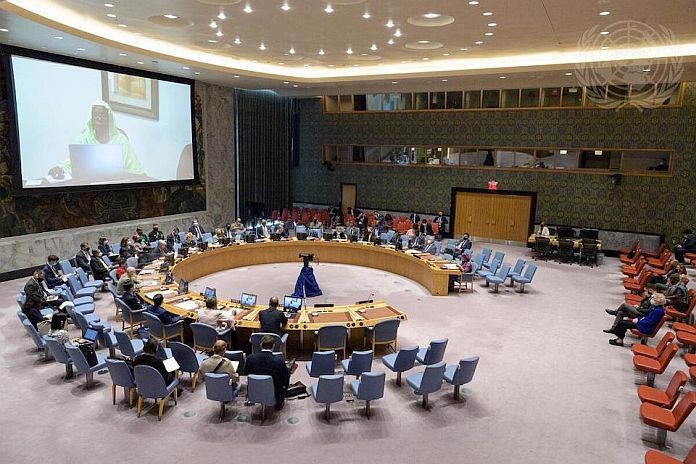Statement by Ambassador James Kariuki at the Security Council briefing on peacekeeping
By Ambassador James Kariuki
Our peacekeepers serve in some of the most challenging circumstances, supporting peace processes, protecting civilians, and securing the conditions for transitions to lasting peace; many pay the ultimate sacrifice.
We must ensure all peacekeepers have the necessary training, equipment and support, including the right medical capabilities, to perform at their best. They should be assured that we have done our utmost to enable their efforts and are committed to building upon their achievements.
Madam president, last year the UK deployed peacekeepers to MINUSMA, delivering a capability that directly improves the reach, agility and responsiveness of the mission, particularly in protecting civilians.
Working alongside Bangladeshi, Swedish, Nigerien, Irish and German partners, among others, UK forces have engaged with Malian communities who had never before met UN peacekeepers, to understand their needs and concerns. They have gathered intelligence to support mission planning, improve overall mission performance and responsiveness to threats. UK peacekeepers working closely with mission planners have helped Malian government officials and civilian human rights colleagues in MINUSMA to increase their reach – a powerful example of the military supporting the broader UN system and promoting local governance.
Madam president, UK troops and their partners are fulfilling our expectations of peacekeepers: preventing violence, building host state capacities, and laying foundations for long-term peace and a sustainable mission transition.
However, no matter how effective our operations, long-term peace and successful transitions in Mali and elsewhere rely on finding sustainable political solutions. This requires our collective, coherent and consistent response, at all levels: multilateral, bilateral and regional. I welcome the Secretary-General’s focus on this through the Action for Peacekeeping agenda and his A4P+ priorities.
For our peacekeepers’ efforts to be worthwhile, we must continue reinforcing our support for such solutions long after peacekeeping missions drawdown. In Sudan, the establishment of UNITAMS following the drawdown of UNAMID has enabled the continuation of international support to the government of Sudan’s efforts to build lasting peace and security in Darfur.
Sustainable transitions require UN peacebuilding structures, peace and security architecture, and the development system to work together. I welcome the Secretary-General’s directive to UN missions, country teams and HQ entities on early joint planning and financing, operational support and staffing. Sustaining peace relies on robust national ownership – host states building their own capacities, with the right international support, and making plans for transitioning responsibilities, with clear benchmarks for a desired end state, not an end date.
As we’ve heard today the voices of women, youth and civil society are essential if transitions are to be sustainable. In Mali, UK bilateral funding is helping to increase the participation of women in the peace process and helps strengthen civilian coordination in order to facilitate humanitarian access. More broadly, the UK is a strong supporter of the Peacebuilding Fund, having contributed more $300,000 million since its inception. The combination of peacekeeping efforts, and wider support from the international community, are key to creating the conditions for a sustained peace.
Madam president, effective transitions require all actors, across and beyond the UN system, to plan together to consolidate peace and to follow through in support of political solutions. In doing so, we can safeguard the legacy of all our peacekeepers and ensure their sacrifices are not in vain.





